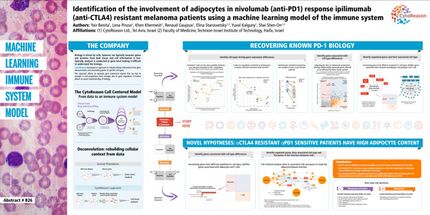Time and Cost Savings Promote Appeal of High Throughput Screening in Drug Discovery
Strategic Analysis of European High Throughput Screening Market
Advertisement
Pharmaceuticals and biotechnology companies are under constant pressure to discover and develop new therapeutics at a lesser cost and within shorter timeframes. However, with investments exceeding USD 500 million and nine out of ten candidates failing to get drug approval, pharmaceuticals and biotechnology companies face a challenging task ahead.
High throughput screening (HTS) is emerging as a viable option as pharmaceuticals and biotechnology companies strive to become the first to market a new drug. HTS has the potential to provide mechanistic insights and new drug leads with unparalleled efficiency.
"By shortening the drug discovery cycle, HTS offers the opportunity to capture maximum market share and optimise revenue generation within the first year of entry," explains Research Analyst Dr. Amarpreet Dhiman from Frost & Sullivan (http://biotech.frost.com). "It is also likely to increase the chances of clearing clinical trials by addressing issues related to pharmacokinetics, animal toxicity and side-effects."
The European HTS market was worth USD 483 million in 2003 and is projected to be valued at USD 925 million in 2010. Germany is the largest market for HTS in Europe, with revenues greater than USD 120 million of the market value.
For multinational pharmaceuticals and biotechnology companies that need to compress time and costs in drug development, outsourcing HTS has emerged as a cost-effective option that also provides access to additional drug entities and innovative technology. In fact, outsourcing is expected to form 57 per cent of total drug development expenditure in 2010.
The introduction of new technologies over the past decade has also proved instrumental in improving the chances of discovering innovative drugs and shortening the discovery cycle. For instance, integration of robotics with HTS has played a key role in achieving higher screening rates and avoiding expensive manual interventions.
Bioinformatics also speeds up the drug discovery process by predicting the biological properties of a particular lead compound and its viability as a potential drug candidate. When used in conjunction with bioinformatics, HTS can rely on quality lead compounds to generate considerable time and cost savings.
High Content Screening - an advanced form of cell-based assays - offers the potential to address and ease the many bottlenecks currently encountered in the drug discovery process.
"Insights from information-rich assays are likely to assist in the discovery of effective drugs and could also reduce the need for secondary screens in the future," says Dr. Dhiman.
The role of HTS in heightening the probability of success in drug discovery is largely due to the support of several complementary technologies. For instance, combinatorial chemistry has increased the availability of targets and drug candidates through the acquisition of compound libraries.
"An increase in the quantity of compound libraries is essential to improve the quality of HTS," explains Dr. Dhiman.
Advances in molecular and cellular biology, genetics, genomics and proteomics have also been a major driving force for HTS. New classes of therapeutic molecules have been developed due to the success of genomics and proteomics in providing an expanding list of cellular targets.
Although HTS has succeeded in generating a vast amount of data for propelling drug discovery, a significant void remains in terms of data storage, interpretation and analysis that are crucial for evaluating future drug candidates.
"The lack of validated statistical methods to ensure the integrity of the data obtained during the screening becomes challenging for most companies involved in drug discovery," notes Dr. Dhiman. "In this regard, it is absolutely critical to improve statistical procedures for efficiently analysing the data generated during the HTS process."
If you are interested in an overview providing a first introduction into the Strategic Analysis of European High Throughput Screening Market please use the 'get information'-button.
Other news from the department business & finance
Most read news
More news from our other portals
See the theme worlds for related content
Topic World Cell Analysis
Cell analyse advanced method allows us to explore and understand cells in their many facets. From single cell analysis to flow cytometry and imaging technology, cell analysis provides us with valuable insights into the structure, function and interaction of cells. Whether in medicine, biological research or pharmacology, cell analysis is revolutionizing our understanding of disease, development and treatment options.

Topic World Cell Analysis
Cell analyse advanced method allows us to explore and understand cells in their many facets. From single cell analysis to flow cytometry and imaging technology, cell analysis provides us with valuable insights into the structure, function and interaction of cells. Whether in medicine, biological research or pharmacology, cell analysis is revolutionizing our understanding of disease, development and treatment options.



























































